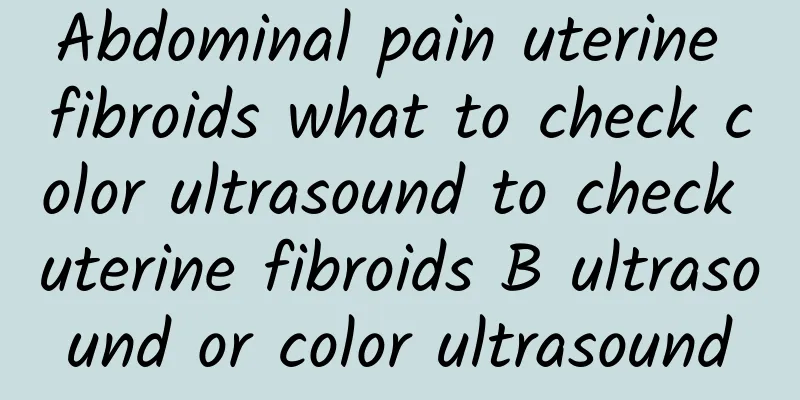What are the symptoms of vaginitis?

|
What are the symptoms of vaginitis? Common symptoms of vaginitis include the following: 1. Vulvar itching and burning pain: The patient's vulva will be itchy, vaginal discharge will increase, there will be a foul and fishy smell, and it will also be accompanied by burning pain, pain during sexual intercourse, frequent urination, and painful urination. 2. Increased leucorrhea: The leucorrhea appears abnormal, is yellow watery or purulent, has a foul odor, and in severe cases may cause urethral bleeding, pain, and vaginal burning sensation. 3. Abnormal vaginal secretions: When vaginitis is severe, a large amount of yellow-green or gray foamy secretions will appear, with a fishy smell, and mixed with blood or hemorrhagic purulent secretions. These secretions contain a large number of pathogens and can cause vulvar itching. Clinical examination will reveal small red particles or petechiae in the vaginal mucosa. If the above symptoms occur clinically, vaginal secretion testing is required to clarify the type of vaginitis and whether the vaginal microecology is damaged. The vaginal microecology is an ecosystem composed of vaginal microbial flora, the host's endocrine system, vaginal anatomical structure and vaginal local immune system. There are many types of normal vaginal microbial flora, including: ① Gram-positive aerobic bacteria and facultative anaerobes: Lactobacillus, Corynebacterium, non-hemolytic Streptococcus, Enterococcus and Staphylococcus epidermidis; ② Gram-negative aerobic bacteria and facultative anaerobic bacteria: Gardnerella, which has a Gram-staining variation and is sometimes Gram-positive, Escherichia coli and Morganella; ③ Obligate anaerobes: Peptococcus, Peptostreptococcus, Bacteroides, Mobiluncus, Fusobacterium and Prevotella; ④Others: including mycoplasma, Candida, etc. Different types of vaginal inflammation have different treatment methods. Local medication combined with systemic medication is required. Patients with Trichomonas vaginitis may have Trichomonas infection in multiple parts of the urethra, paraurethral glands, and Bartholin's glands at the same time. Systemic medication is required to cure this disease, and vaginal douching should be avoided. The main therapeutic drugs are nitroimidazole drugs. |
<<: 3CMX2CM Is pelvic effusion serious?
>>: Why don't you have your period?
Recommend
How to detect adnexitis
Adnexitis can be diagnosed through gynecological ...
Which hospital can treat uterine effusion?
In real life, not all women will suffer from uter...
How to detect cervical warts best
Although our living conditions have improved, the...
What do you know about the diagnostic criteria for women's menstrual disorders?
What are the diagnostic criteria for irregular me...
Upper body obesity VS lower body obesity Drinking fruit and vegetable juice to adjust differently
Never getting enough dietary fiber? In order to q...
Will there be any symptoms of ectopic pregnancy at 36 days?
Will there be any symptoms of ectopic pregnancy a...
What are the main causes of secondary dysmenorrhea?
There are two types of dysmenorrhea: primary dysm...
What should be checked before uterine fibroid surgery? Are uterine fibroids multiple?
Uterine fibroids are the most common benign tumor...
What causes brown discharge during pregnancy?
Brown discharge during pregnancy may be due to ph...
What to eat to nourish your body after miscarriage? See what the doctor says
We all know that miscarriage is very harmful to t...
What are the treatments for female vaginitis and cervical erosion? What are the treatments for female vaginitis and cervical erosion?
There are many types of female gynecological dise...
Can uterine cysts delay treatment?
Can uterine cysts delay treatment? Whether the tr...
5 aerobic exercise demonstrations for postpartum body shaping
Half abdominal curl exercise Effect: Training the...
Can pelvic peritonitis heal on its own?
With the development of society, the pace of life...
Congenital absence of vagina care measures
In recent years, the incidence of congenital abse...









